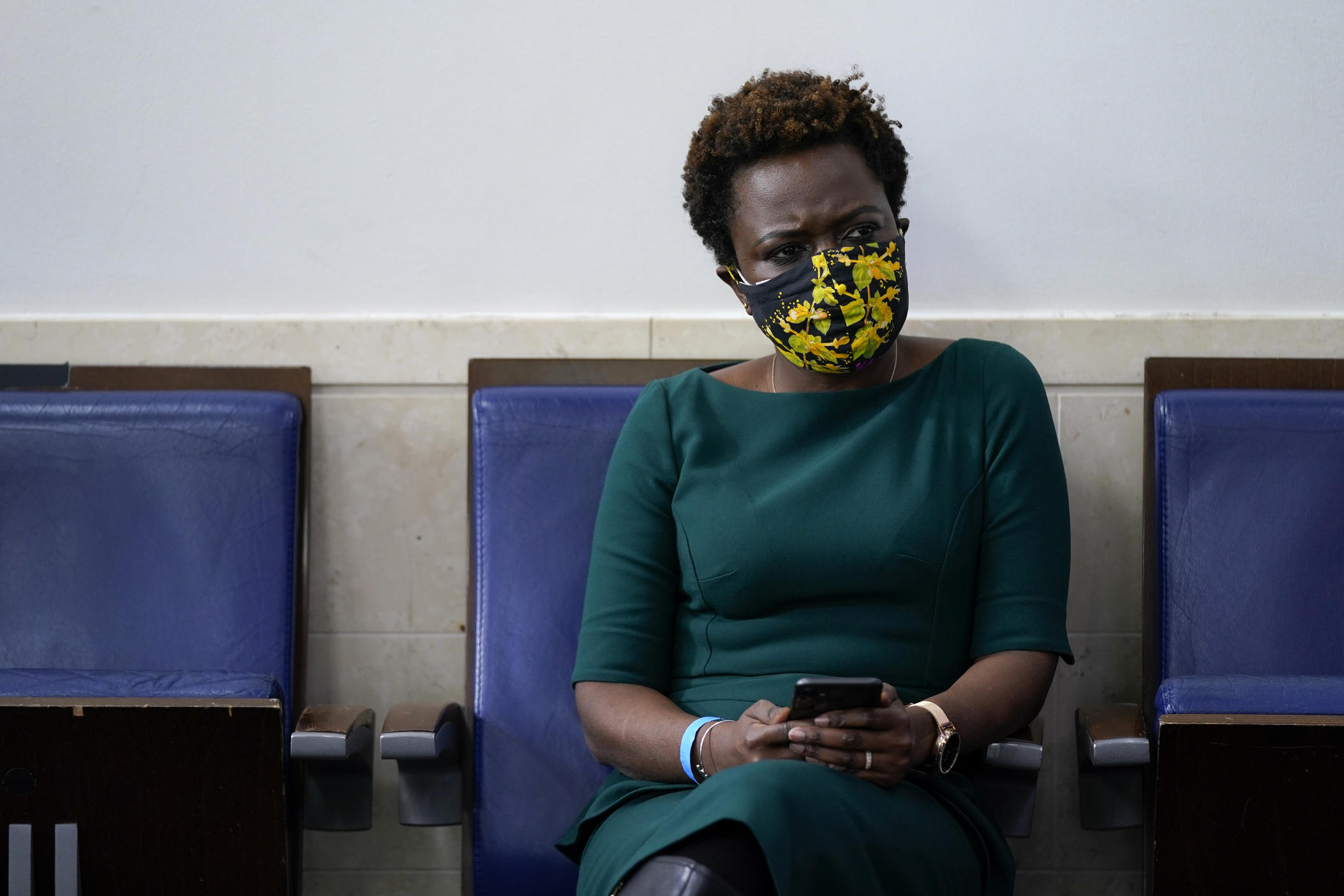Section Branding
Header Content
INTERVIEW: Deputy White House Press Sec. Talks COVID Relief Bill
Primary Content
White House principal deputy press secretary Karine Jean-Pierre spoke to GPB News' Sarah Rose on Friday about the proposed American Rescue Plan set forth by the Biden administration, currently making its way through Congress.
Sarah Rose: Senate parliamentarian Elizabeth McDonough cut the proposed $15 minimum wage increase that was a part of this plan because she said it did not meet terms of reconciliation. I know the White House said in a statement they were disappointed by that decision — is there a Plan B for pushing for a minimum wage increase?
Karine Jean-Pierre: So as as you just stated, the president said he was disappointed by the decision, but respects the decision by the parliamentarian. Sarah, this is something that is critically important to the president. That's why he put it in the American Rescue Plan. That's why that's why he's been talking about it and pushing so hard for it. So right now, he's not going to waver in making sure that happens. He's going to respect the parliamentarian's decision. He's going to work closely with Congress to figure out ways to push that forward, to make sure the $15 an hour minimum wage happens. And so this is a commitment that he has made and he's going to just continue working with Congress on making that happen.
Sarah Rose: The rescue plan is pledging a broad distribution of the vaccine — specifically “community vaccination centers around the country and deploying mobile vaccination units to hard-to-reach areas." Logistically, who would be in charge of that? Would this be a deeper coordination with state efforts or would you be looking to do something like a mobilization of the military?
Karine Jean-Pierre: Oh, that's an interesting question. So right now, we are working closely with states, with local officials, state governors in vaccination distribution. And so that is something where we have made a commitment. When we got into the White House, the president, when it comes to COVID response and getting these vaccinations out, he was going to work with the states and not leave them behind, as we saw in the last administration. So that is the partnership that we have. It's a federal government partnership, a whole government partnership with state officials and local officials. So that's how we've been doing that.
Sarah Rose: I mentioned on my social media that I would be speaking to you today and the most common question I was told to ask you — maybe unsurprisingly — was about additional stimulus checks. Do you have a rough estimate of when Americans could be receiving an additional $1,400?
Karine Jean-Pierre: Well, that's why today is so important. You know, it looks like the House is going to to pass the president's American Rescue Plan. It's going to go to the Senate. And we are working to get that done swiftly. This is what the president has said. It needs to happen quickly. We need to get to Americans that fourteen-hundred-dollar check right away. This is a promise that we've made in order to make them whole. This is a need that they have. We know we're seeing people across the country losing their jobs. Sadly, 11 million people have lost their jobs during this pandemic. So that's an economic crisis. We have 2.5 million women who have left the workforce in since last February. We are hearing about people having food insecurity, not being able to put food on their table, possibly on the brink of losing their homes or losing their apartment because they're not able to pay for their rent or their mortgage. This is what the American Rescue Plan does. It meets this big moment that we're in as we're dealing with two critical crises in this country right now.
Sarah Rose: A story I’ve been covering here in Georgia is the special hardship that music and entertainment venues have endured in the last year and the White House website, in talking about this plan, acknowledges the arts has disproportionately suffered.
As you may know, Atlanta is a big music city and most of our venues have been shuttered for the last year. Should independent concert venues feel like help is on the way?
Karine Jean-Pierre: They should. I mean, this is a plan that helps everyone, the people who are the most hard hit if you're applying for unemployment insurance benefits. This what this plan does, it extends that. It adds a couple more hundred dollars in your pocket. So we are really zeroing in on the folks who are going to be who are at need.
Sarah Rose: Part of this plan includes an extension of the eviction and foreclosure moratorium until Sept. 30, 2021. Is there a game plan for Nov. 1, 2021, to avoid a nationwide eviction crisis for families that are behind on their rent payments?
Karine Jean-Pierre: Yeah, we're going to try and get this through this process, Sarah. You know, we're trying to get this American Rescue Plan moving forward and then we'll see what's next. You know, one of the things that that President Biden has talked about is creating jobs, making sure that we do that. But first, we need to get this American Rescue Plan done. But clearly, the moratorium was incredibly critical and important for us, which is why he extended it.
Sarah Rose: The plan also mentions the “shadow pandemic” that women and femme people face in potentially being forced to house themselves with an abuser. The plan calls for $800 million in supplemental funding for federal programs — is the administration willing to commit to only supporting programs across the country that are inclusive of trans women in this funding?
Karine Jean-Pierre: Well, as you know, President Biden has been a huge advocate for LGBTQ community, which I am proud to be part of. He has put that to the forefront of his commitment to the American people. And so he understands how important it is to protect the transgender community. And so he has — certainly is making sure that we put forward some policies that continue to do that for the community. But he understands. He gets it and he gets how dire and how critical it is, and how difficult it's been for that community as well. And he talks about that. He talks about that openly. He talks about that with full heart. And so we're going to continue to make sure that we put out policies that help the community in every way possible using the full government that we have. The whole government approach, I should say.


